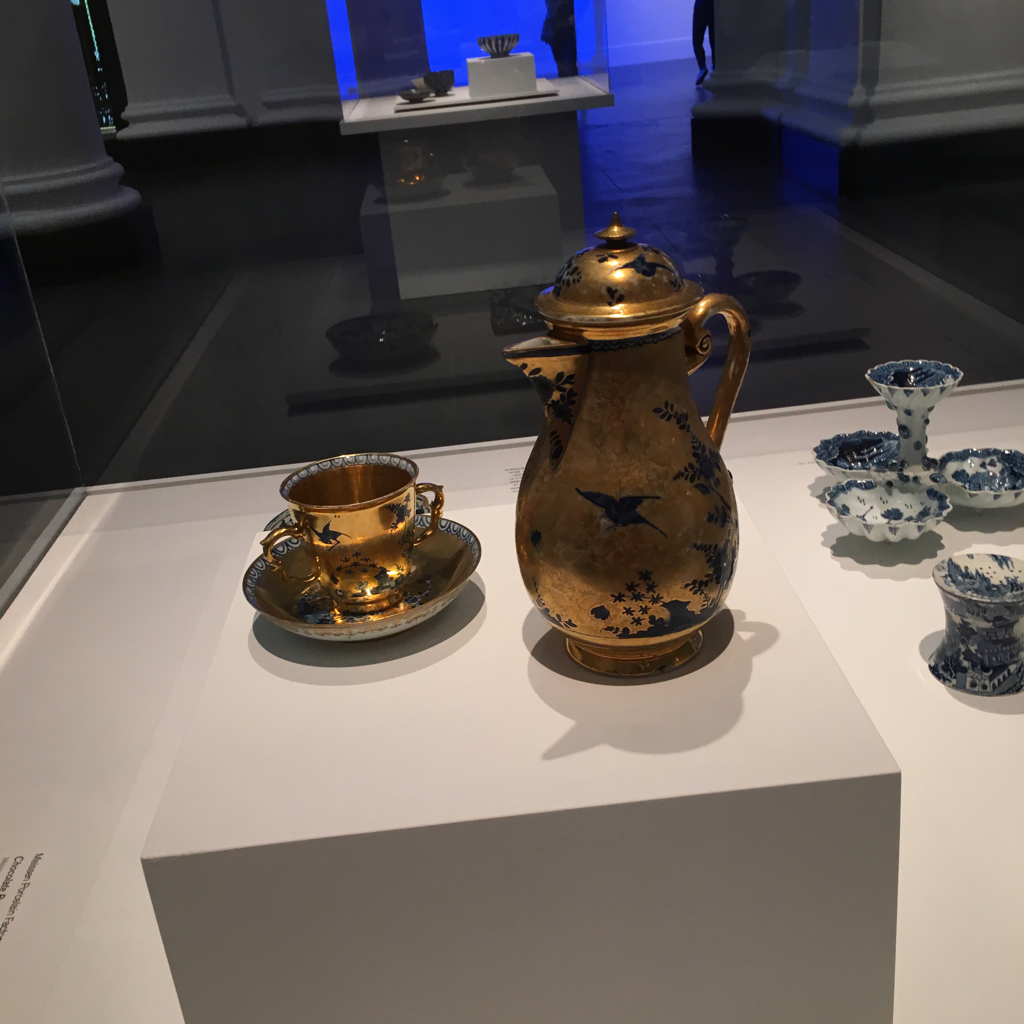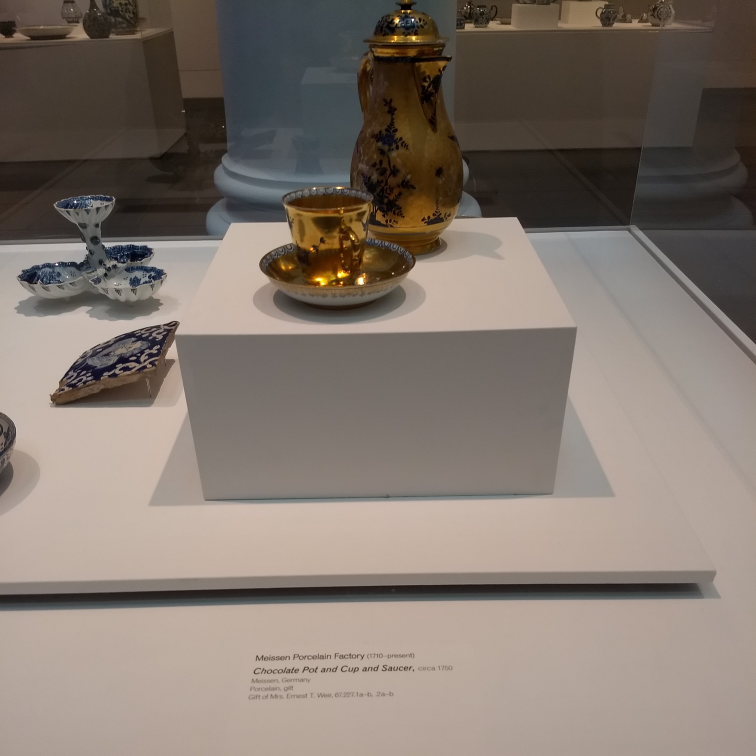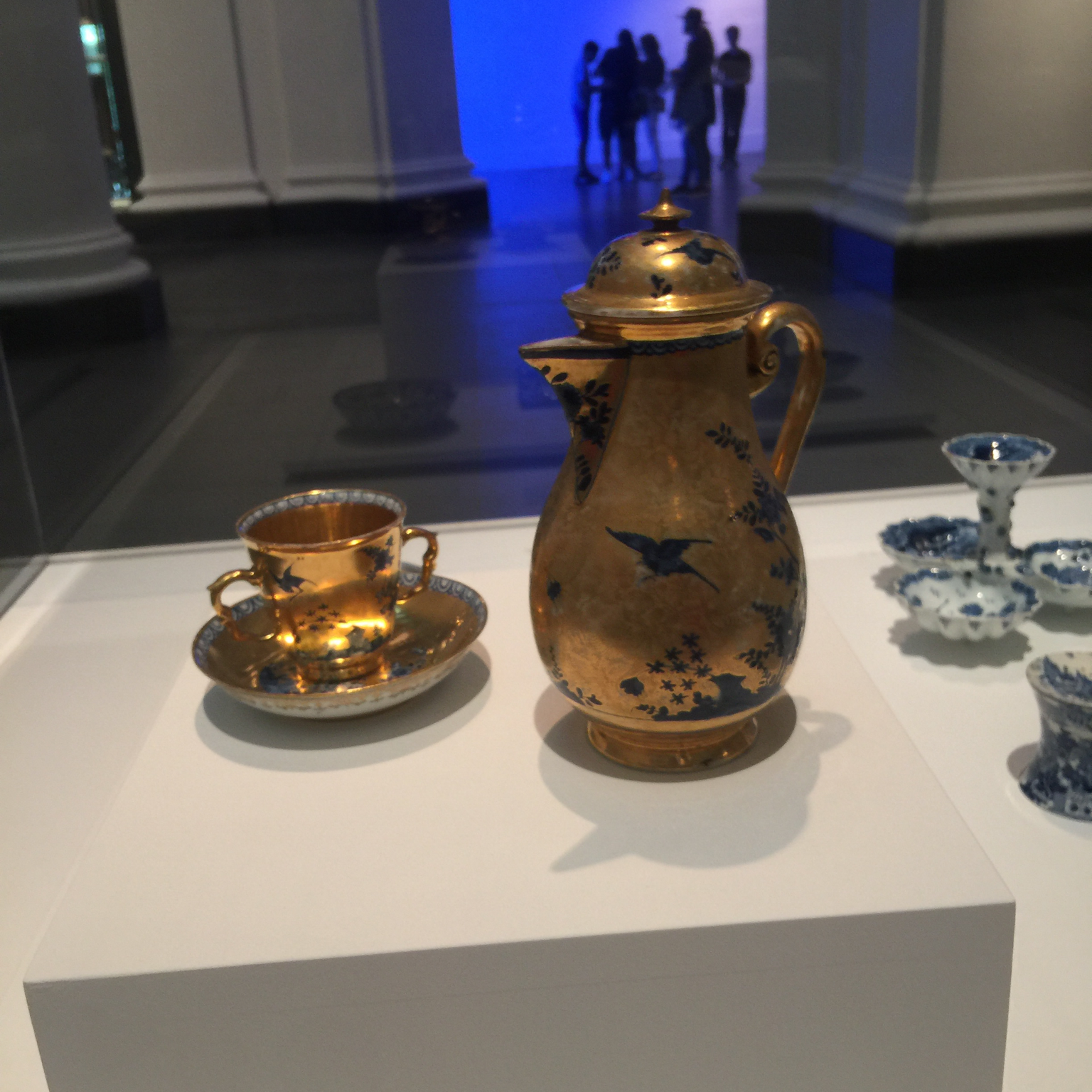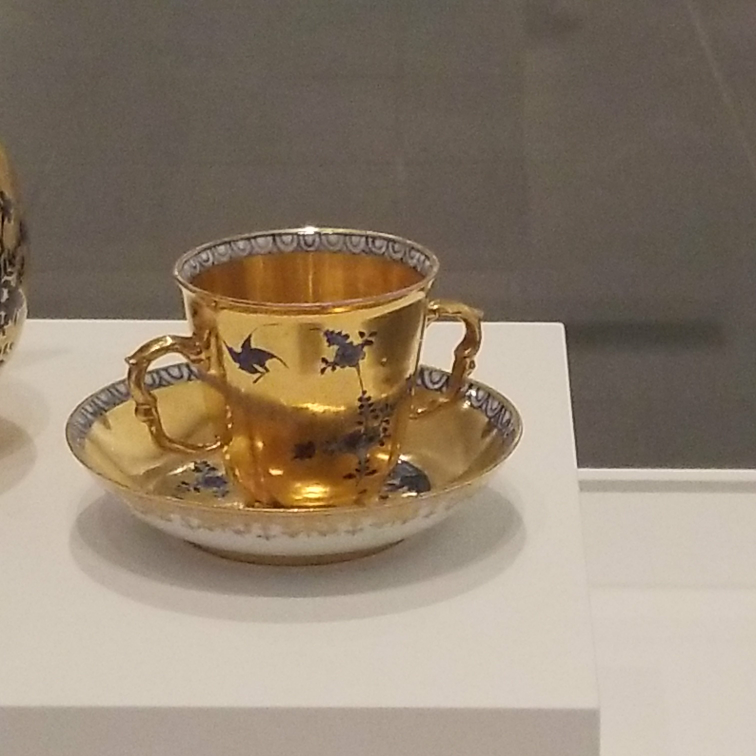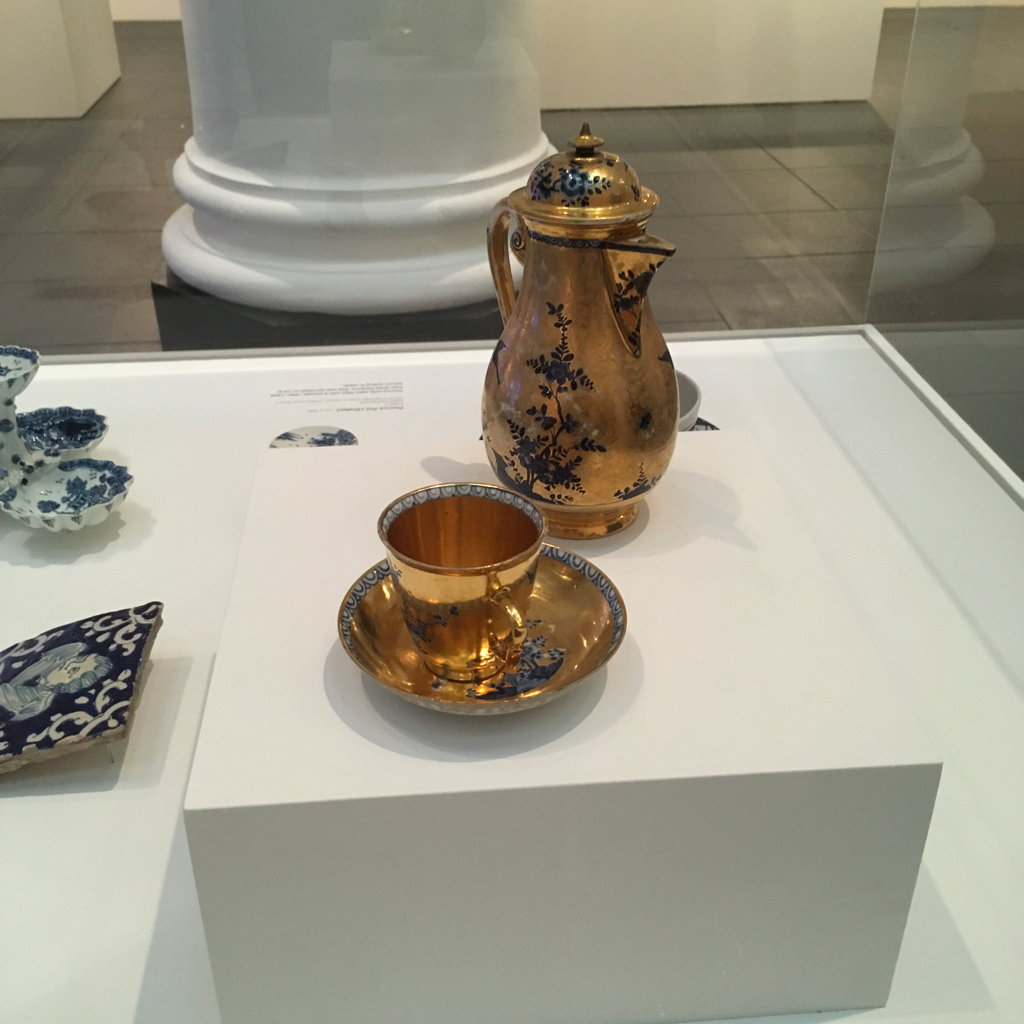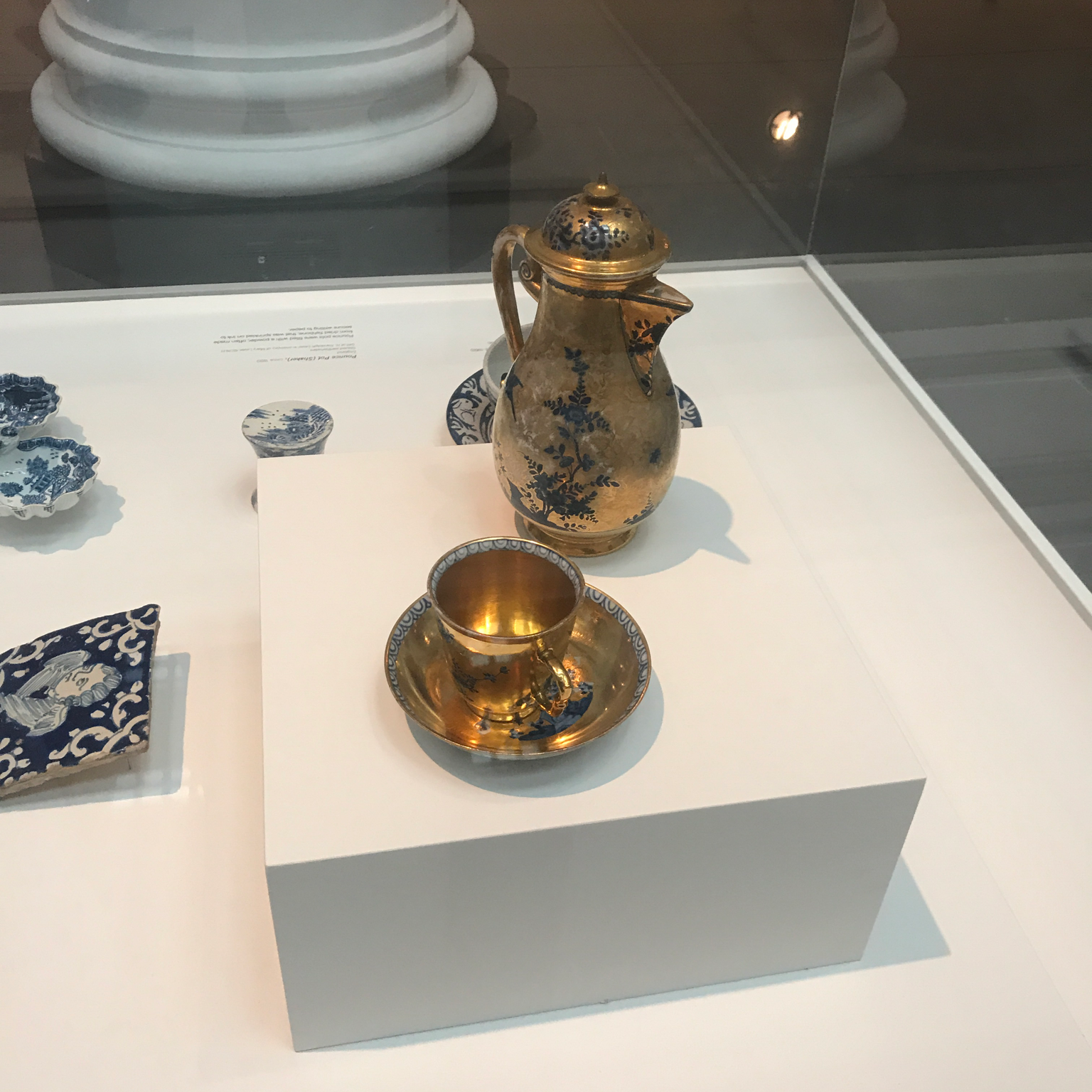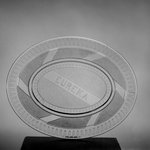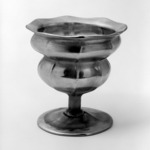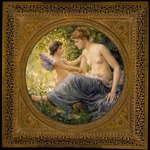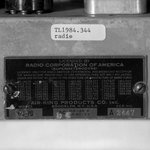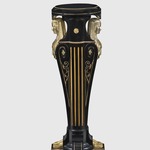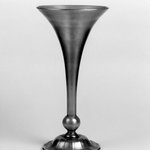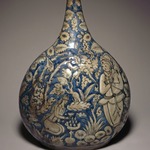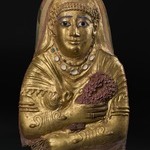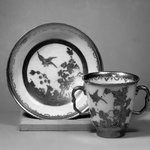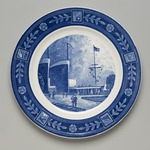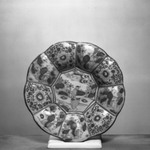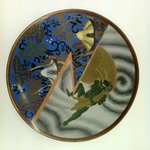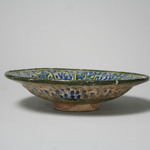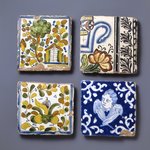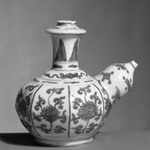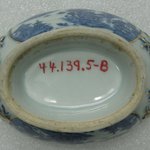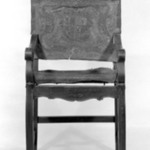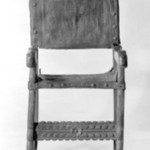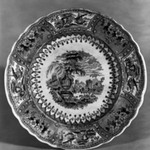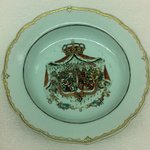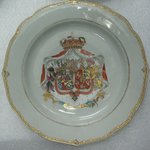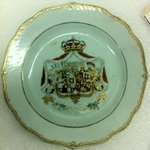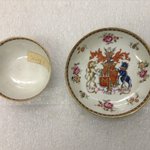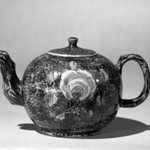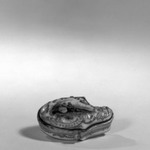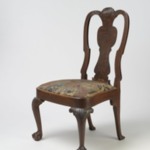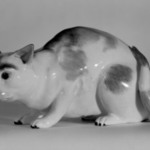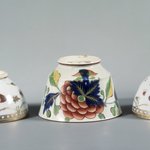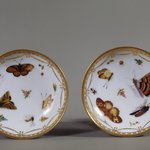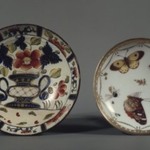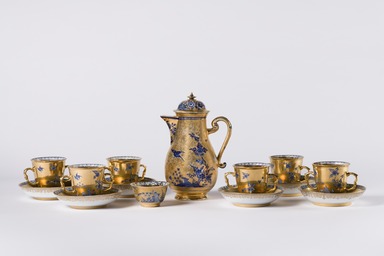

Meissen Porcelain Factory (German, founded 1710). Chocolate Pot with Cover (Part of Chocolate Service Set), ca.1750. Ceramic, underglaze, glaze, and gold enamel, 8 x 4 in. (20.3 x 10.2 cm). Brooklyn Museum, Gift of Mrs. Ernest T. Weir, 67.227.6a-b. Creative Commons-BY (Photo: Brooklyn Museum, 67.227.6-.13_PS22.jpg)
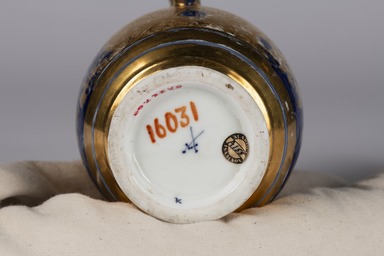
Meissen Porcelain Factory (German, founded 1710). Chocolate Pot with Cover (Part of Chocolate Service Set), ca.1750. Ceramic, underglaze, glaze, and gold enamel, 8 x 4 in. (20.3 x 10.2 cm). Brooklyn Museum, Gift of Mrs. Ernest T. Weir, 67.227.6a-b. Creative Commons-BY (Photo: Brooklyn Museum, 67.227.6a_mark_PS22.jpg)
Chocolate Pot with Cover (Part of Chocolate Service Set)
Decorative Arts and Design
MEDIUM
Ceramic, underglaze, glaze, and gold enamel
DATES
ca.1750
DIMENSIONS
8 x 4 in. (20.3 x 10.2 cm) (show scale)



MARKINGS
on underside, in underglaze blue: cossed swords.
SIGNATURE
no signature
INSCRIPTIONS
no inscriptions
COLLECTIONS
Decorative Arts and Design
ACCESSION NUMBER
67.227.6a-b
CREDIT LINE
Gift of Mrs. Ernest T. Weir
EXHIBITIONS
MUSEUM LOCATION
This item is not on view
CAPTION
Meissen Porcelain Factory (German, founded 1710). Chocolate Pot with Cover (Part of Chocolate Service Set), ca.1750. Ceramic, underglaze, glaze, and gold enamel, 8 x 4 in. (20.3 x 10.2 cm). Brooklyn Museum, Gift of Mrs. Ernest T. Weir, 67.227.6a-b. Creative Commons-BY (Photo: Brooklyn Museum, 67.227.6-.13_PS22.jpg)
IMAGE
overall, 67.227.6-.13_PS22.jpg. Brooklyn Museum photograph, 2024
"CUR" at the beginning of an image file name means that the image was created by a curatorial staff member. These study images may be digital point-and-shoot photographs, when we don\'t yet have high-quality studio photography, or they may be scans of older negatives, slides, or photographic prints, providing historical documentation of the object.
RIGHTS STATEMENT
Creative Commons-BY
You may download and use Brooklyn Museum images of this three-dimensional work in accordance with a Creative Commons license. Fair use, as understood under the United States Copyright Act, may also apply.
Please include caption information from this page and credit the Brooklyn Museum. If you need a high resolution file, please fill out our online application form (charges apply).
For further information about copyright, we recommend resources at the United States Library of Congress, Cornell University, Copyright and Cultural Institutions: Guidelines for U.S. Libraries, Archives, and Museums, and Copyright Watch.
For more information about the Museum's rights project, including how rights types are assigned, please see our blog posts on copyright.
If you have any information regarding this work and rights to it, please contact copyright@brooklynmuseum.org.
RECORD COMPLETENESS
Not every record you will find here is complete. More information is available for some works than for others, and some entries have been updated more recently. Records are frequently reviewed and revised, and we welcome any additional information you might have.


